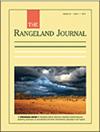旱地生态系统中肉食动物管理的比较叙述:国家支持的致命控制的案例研究
IF 0.9
4区 环境科学与生态学
Q4 ECOLOGY
引用次数: 0
摘要
对本地食肉动物进行致命控制作为主要的管理策略,可能会产生不可预见的生态后果,而且往往效果可疑。我们以一个50多年来一直通过立法鼓励对本地美洲狮和狐的致命控制的地区为例,研究了这一政策如何影响该地区的制度叙述。我们与相关机构的成员进行了四次重要的线人访谈,以确定他们对食肉动物管理的看法。我们还研究了当前捕食立法方法的信息基础,并为该省的决策者确定了围绕立法及其形成的讨论主题。我们发现了一种二元性,即政府的两个部门在畜牧生产和食肉动物管理方面有相互矛盾的政策。所有参与农村景观中掠食管理的机构都提出了支持可持续发展的说法,并在不同程度上表明,替代致命控制的办法将是积极的。受访者表示,修改现行法律需要牲畜生产者要求决策者做出改变,因为他们通常对食肉动物的看法不佳。此外,有证据表明,围绕管理策略的讨论受到文化偏见的影响,农村居民发现自己在决策过程中被边缘化。我们发现需要对面临捕食影响的农村居民的不利处境感同身受,以及对食肉动物在其环境中扮演的角色的欣赏,从而改变围绕人类与食肉动物互动的负面话语。本文章由计算机程序翻译,如有差异,请以英文原文为准。
Comparing narratives on carnivore management in a dryland ecosystem: a case study of state-backed lethal control
Lethal control of native carnivores as a principal management strategy can have unforseen ecological consequences and is often of questionable efficacy. Using as a case study a region where the lethal control of native puma and culpeo foxes has been incentivised via legislation for over 50 years, we examined how this policy has affected institutional narratives in the region. We conducted four key informant interviews with members of relevant institutions to establish their perspectives on carnivore management. We also examined the informational basis for the current legislative approach to predation, and identified topics for discussion surrounding legislation and its formation for decision-makers in the province. We identified a duality where two branches of gove rnment have contradictory policies regarding livestock production and carnivore management. All institutions involved in predation management in rural landscapes produced narratives supporting sustainable development, and suggested, in varying degrees, that alternatives to lethal control would be positive. Interviewees stated that modification of the existing laws require livestock producers to demand a change from policy-makers, who generally view carnivores poorly. Furthermore, there is evidence that discussions surrounding management strategies suffer from cultural bias, with rural inhabitants finding themselves marginalised from the decision-making process. We identified a need for empathy regarding the adverse situation of rural inhabitants facing the impacts of predation, and an appreciation of the role that carnivores play within their environments, so as to change the negative discourse surrounding human–carnivore interactions.
求助全文
通过发布文献求助,成功后即可免费获取论文全文。
去求助
来源期刊

Rangeland Journal
环境科学-生态学
CiteScore
2.90
自引率
8.30%
发文量
14
审稿时长
>36 weeks
期刊介绍:
The Rangeland Journal publishes original work that makes a significant contribution to understanding the biophysical, social, cultural, economic, and policy influences affecting rangeland use and management throughout the world. Rangelands are defined broadly and include all those environments where natural ecological processes predominate, and where values and benefits are based primarily on natural resources.
Articles may present the results of original research, contributions to theory or new conclusions reached from the review of a topic. Their structure need not conform to that of standard scientific articles but writing style must be clear and concise. All material presented must be well documented, critically analysed and objectively presented. All papers are peer-reviewed.
The Rangeland Journal is published on behalf of the Australian Rangeland Society.
 求助内容:
求助内容: 应助结果提醒方式:
应助结果提醒方式:


